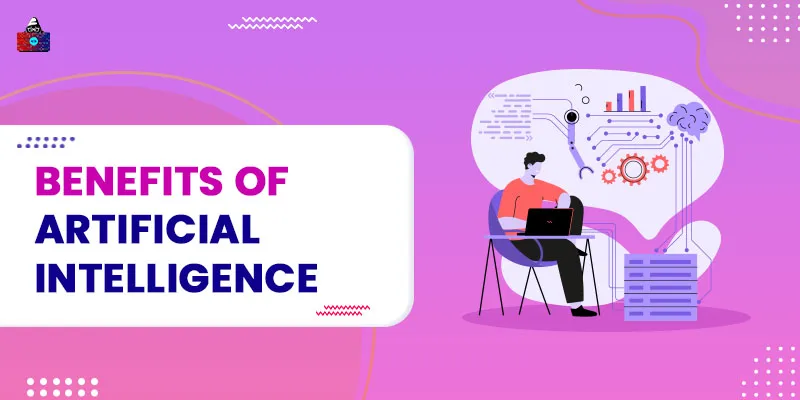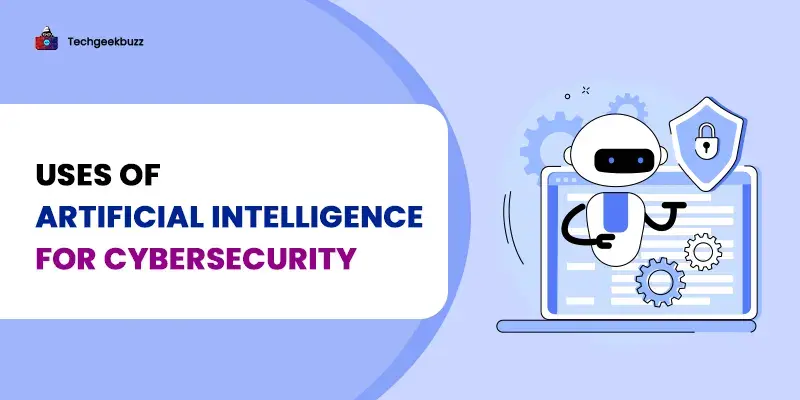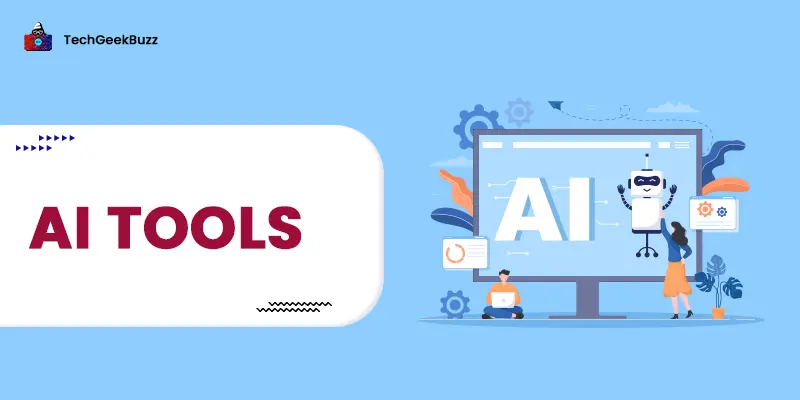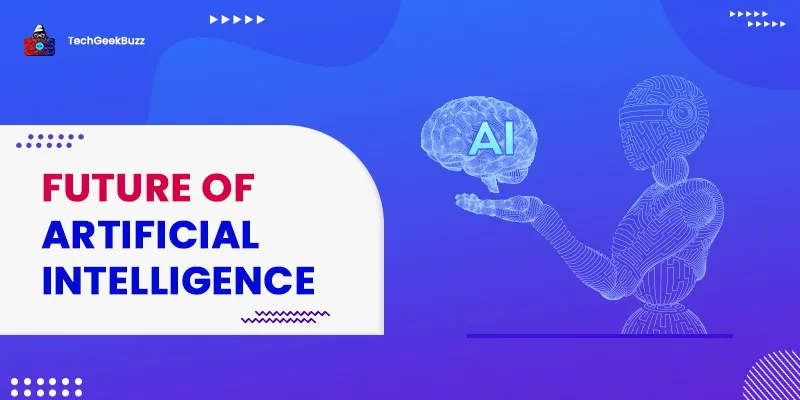Artificial Intelligence (AI) is one of the emerging and breakthrough technologies, and it aims to simulate human intelligence and reasoning in machines. Also, AI is an umbrella term for various individual technologies, including machine learning, deep learning, computer vision, cognitive computing, and neural networks.
In simple terms, we can define AI as a technology that aims to develop and manage machines or systems which are capable of performing complex tasks that require human intelligence. From digital assistants like Google Assistant, Alexa, and Siri, and quick suggestions on search engines to self-driving cars and robots, artificial intelligence has become a crucial aspect of the modern world.
Every industry type, including education, healthcare, finance, media, agriculture, etc., is leveraging AI technology to automate and streamline a wide variety of processes. The benefits offered by this technology are massive and can revolutionize any sector.
Through this article, we will help you get familiar with some significant advantages of artificial intelligence. Prior to it, we shall have a brief discussion on what exactly artificial intelligence is.
So, let us begin.
What is Artificial Intelligence?
Artificial intelligence is an interdisciplinary field focusing on leveraging machines and computer systems to simulate human cognitive features, like problem-solving and decision making. AI enables computer systems and machines to think, learn, and work on their own. AI-powered machines or systems learn from experiences and perform tasks that require human intelligence.
The principal goal of AI is to make human lives easier, devoid of hard labor. There are various kinds of AIs that are classified into two groups, namely capability-based and functionality-based.
- Capability-based
The capability-based group categorizes AIs or AI-enabled systems based on their ability to feel and think like humans. There are three types of capability-based AI-powered systems, as mentioned below:
- Narrow or Weak AI
- General AI
- Super AI or Artificial Superintelligence (ASI)
- Functionality-based
The functionality-based group categorizes AI systems based on their ability to carry out tasks that require human-like intelligence. There are four types of functionality-based AI systems, as listed below:
- Relative Machines
- Limited Memory
- Theory of Mind
- Self-Aware AI
Benefits of Artificial Intelligence
We have listed some of the most remarkable benefits of AI that are transforming the world.
1. Automation
One of the notable benefits of artificial intelligence is its ability to automate tasks. Automation has a great impact on various industries, especially in transportation and manufacturing. Such industries can use AI-augmented robots that can perform a wide range of tasks, like assembling, packaging, and delivering products to customers, without any human intervention. Automation results in increased productivity, efficient use of raw materials, superior safety, improved product quality, and higher production rates.
2. Smart Decision-Making
Machines are more reliable than humans in making decisions, as many times the decisions made by individuals are emotionally inspired. In contrast, AI-powered machines simply make decisions based on the data that they process, and there are no emotional factors that affect their decision-making ability.
Furthermore, artificial intelligence helps businesses to make smart decisions. It can analyze massive amounts of data, find hidden trends and patterns, and deliver actionable insights that come in handy for making informed decisions.
3. Eliminates the Necessity for Humans to Perform Repetitive Tasks
Workers or employees find it challenging to sustain their concentration while performing the same task repetitively, which may result in errors. Artificial intelligence eliminates the struggle involved in accomplishing repetitive tasks like data entry, document verification, etc.
One of the examples where artificial intelligence can eliminate the need for humans to perform repetitive tasks is banking. Issuing a loan requires the verification of documents, which is a tedious task. Instead of verifying various documents manually, it is possible to use AI Cognitive Automation to accelerate the document verification process.
4. Digital Assistants
Digital assistants like SIRI, Alexa, Google Assistant, Cortana, etc., are commonly used voice-activated software programs that make use of artificial intelligence. These digital assistants make it easier for people to search for anything on the web, make a phone call, reply to a mail, or find the best possible route between two places without typing in instructions. You can provide various voice commands to these digital assistants, like ‘Make a call to Dad.’, ‘How is the weather today?’, ‘Open the WhatsApp application, etc.
5. Availability
Unlike humans, AI-powered systems never sleep or take a break. They can work continuously as long as they are getting a power supply. Also, these systems can perform repetitive tasks without getting bored, like humans. Therefore, these systems can work for a long time without hampering their productivity.
6. Enhanced Customer Experience
Artificial intelligence can help businesses solve customer queries by responding to them quickly using chatbots. Chatbots or chatterbots are software programs that combine Natural Language Processing (NLP) and conversational AI to simulate human conversations.
Chatbots can be deployed across various messaging applications, like Facebook Messenger, WhatsApp, or Twitter, and several websites and applications. They interpret a customer’s query and respond with the most relevant answer. Therefore, chatbots offer an enhanced customer experience by responding to their queries quickly.
7. Zero Human Errors
Another significant benefit offered by AI is that it can eliminate human errors that may lead to failures. For example, some production lines use AI to detect cracks or other defects in machines that go unnoticed by humans. Additionally, AI-powered machines make precise decisions based on the previously collected data using a certain algorithm set. One such example of AI that reduces human errors and makes precise decisions is weather forecasting.
8. Takes Risks Instead of Humans
AI-powered systems can do those tasks that put human lives at risk, like exploring the deepest part of oceans, mining coal, and extracting oil. In 1986, the Chornobyl nuclear power plant explosion occurred in Ukraine. It occurred while performing the safety test on the steam turbine of an RBMK-type nuclear reactor. There were no AI-powered robots at that time that could control the fire in the early stages.
Conclusion
Artificial intelligence is changing the way the world works. This technology is useful for almost all types of businesses as it helps to make smart and informed decisions, automate repetitive tasks, eliminate human errors, and perform risky tasks. Also, AI-enabled systems are available all the time and can work while maintaining constant productivity levels.
We hope that this article helped you understand all the key benefits of artificial intelligence that you should know, especially if you are planning to work with it.
People are also reading:
- Different Types of Artificial Intelligence
- Best Artificial Intelligence Books
- What is Artificial Intelligence?
- Artificial Intelligence Interview Questions and Answers
- Artificial Intelligence Technologies
- Data Science vs AI
- Best Business Intelligence Tools
- What is a Neural Network?
- Best Arduino Books
- What is Data Analytics?





Leave a Comment on this Post